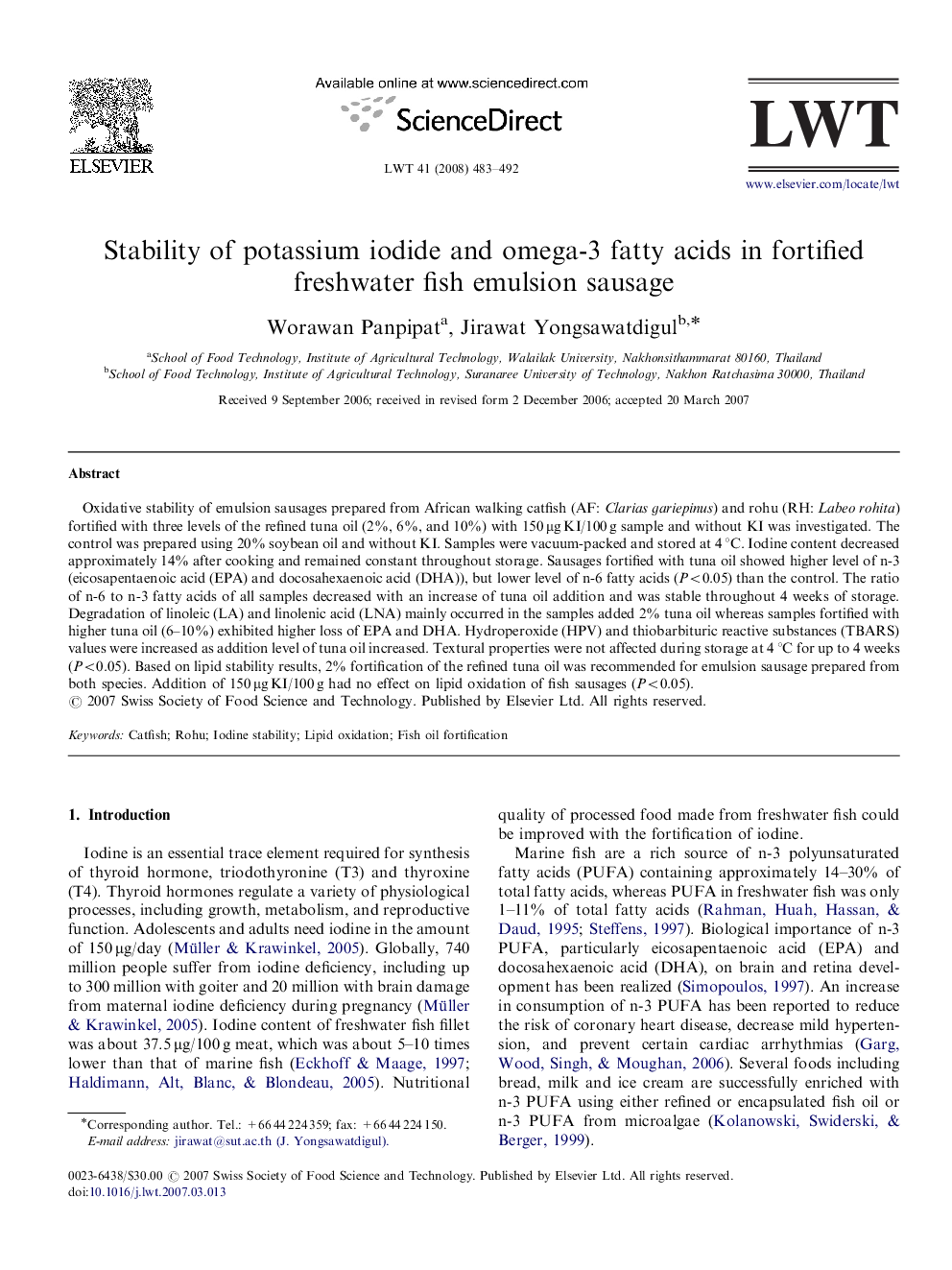| Article ID | Journal | Published Year | Pages | File Type |
|---|---|---|---|---|
| 4564838 | LWT - Food Science and Technology | 2008 | 10 Pages |
Oxidative stability of emulsion sausages prepared from African walking catfish (AF: Clarias gariepinus) and rohu (RH: Labeo rohita) fortified with three levels of the refined tuna oil (2%, 6%, and 10%) with 150 μg KI/100 g sample and without KI was investigated. The control was prepared using 20% soybean oil and without KI. Samples were vacuum-packed and stored at 4 °C. Iodine content decreased approximately 14% after cooking and remained constant throughout storage. Sausages fortified with tuna oil showed higher level of n-3 (eicosapentaenoic acid (EPA) and docosahexaenoic acid (DHA)), but lower level of n-6 fatty acids (P<0.05) than the control. The ratio of n-6 to n-3 fatty acids of all samples decreased with an increase of tuna oil addition and was stable throughout 4 weeks of storage. Degradation of linoleic (LA) and linolenic acid (LNA) mainly occurred in the samples added 2% tuna oil whereas samples fortified with higher tuna oil (6–10%) exhibited higher loss of EPA and DHA. Hydroperoxide (HPV) and thiobarbituric reactive substances (TBARS) values were increased as addition level of tuna oil increased. Textural properties were not affected during storage at 4 °C for up to 4 weeks (P<0.05). Based on lipid stability results, 2% fortification of the refined tuna oil was recommended for emulsion sausage prepared from both species. Addition of 150 μg KI/100 g had no effect on lipid oxidation of fish sausages (P<0.05).
